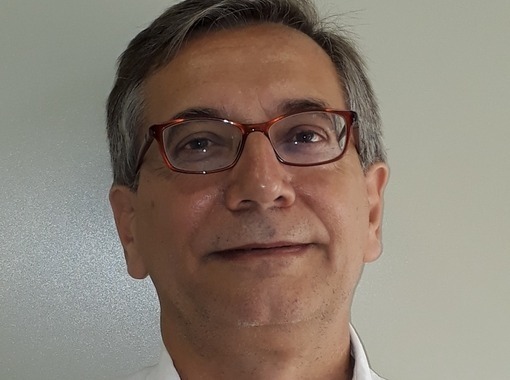Research talk in philosophy: Marco Zingano

Aðalbygging
Room 220
The Institute of Philosophy hosts Marco Zingano for a talk on December 7th, at 15:00-16:30, in room A220, in the Main Building of the University of Iceland. The talk is entitled „Plato’s Charmides and the Project of a Science of All Other Sciences“. The talk will be in English and is open to the public.
Abstract:
Plato’s Charmides has been the subject of recent scholarly attention. I am also interested in revisiting this dialogue in the wake of these recent discussions. However, I intend to take a different perspective, one that, hopefully, sheds new light on Plato’s art of writing philosophical dialogues. If I am correct, this will give us a rare chance to eavesdrop on the philosophical discussions that Plato and his companions engaged in during their gatherings. I am not interested in examining σωφροσύνη as a moral notion. I begin by examining the Charmides where Critias takes over the discussion and tries to explain what he means by defining σωφροσύνη as τὸ τὰ ἑαυτοῦ πράττειν, doing one’s own work (Charm. 161b6). This phrase, applied here to σωφροσύνη, is used to define justice in the Republic. This shift is a topic of scholarly debates, but as it is quickly in the Charmides replaced by the idea of doing good things, I will not dwell on it. The important thing to note is that the new idea of doing good things leads us to the idea of self-knowledge. The latter, as Critias says, is the same as the Delphi inscription, “to know itself”, γνῶθι σαυτόν. The theme of knowing oneself is a major topic in Socratic philosophy, and in this passage, Plato appears to have Socrates explore once more its true meaning, as he has done in several other dialogues. Various attempts have been made to incorporate this conversation into positive self-awareness reflections, making “know oneself” the very motto of Socrates’ philosophy, including the Charmides, and most of the time including prominently the Charmides’ discussion of it. These attempts, I contend, are misguided. Self-awareness is performing a distinct task in Charmides’ context. Critias’s σωφροσύνη has three central notes: it is (i) knowledge of itself and (ii) knowledge of all other kinds of knowledge. However, Critias’ σωφροσύνη (iii) has no knowledge of the objects the other kinds of knowledge are of. This third ingredient is a crucial factor in understanding Critias’ view of σωφροσύνη as formal knowledge that operates on all kinds of knowledge, the latter being knowledge of things, but not the former. Second-order knowledge differs from the other types of knowledge in that it seeks to describe the underlying presuppositions and proving strategies utilised by the various forms of knowledge applied to things, despite having no knowledge of their objects. Its primary goal is to describe and analyse these underlying assumptions and methodologies. Plato’s Charmides, thus – or so I argue –, is a discussion about a project that was being concocted, as we can presume with the benefit of hindsight, by some members of the Academy, Aristotle’s Posterior Analytics being their greatest achievement. This project is what truly interests Plato; Charmides’ moral definitions were merely an appetizer. Plato uses this opportunity to express his doubts regarding the possibility of such formal knowledge and strongly emphasizes that it would have little or no practical value, in case it is feasible. But Aristotle sees things differently and addresses Plato’s worries effectively, in a rather compelling way.
Short bio:
Marco Zingano was educated in Philosophy at the Federal University of Rio Grande do Sul (Porto Alegre, Brazil), and earned his PhD from the Ecole des Hautes Etudes en Sciences Sociales, in Paris. His thesis focused on the notion of choice (prohairesis) in Aristotle. His Habilitation-thesis, which was later published as Estudos de Ética Antiga (Essays on Ancient Ethics), is currently in its third edition (EDUSP Brazil, 2023). Zingano has also published several translations into Portuguese of Aristotle’s Nicomachean Ethics, each with a running commentary. These translations include NE I 13 - III 8 (Odysseus 2008), NE V 1-15 (Odysseus 2017), and NE III 9 – IV 15 (Odysseus 2020). He is currently working on an edition of NE I 1-12 – X 6-10, as well as NE VI. Zingano has published several papers in English, French, Spanish, and Portuguese on topics of Ancient philosophy, ranging from Socrates to Byzantine commentators of Aristotle.
Marco Zingano



